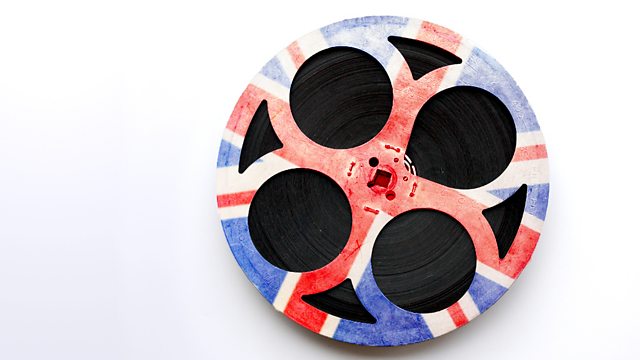Yield to the Night
Simon Heffer discusses the 1956 film Yield to the Night as part of a series about taboo-breaking classic British films of the post-war period.
As part of 大象传媒 Radio 3's Sound of Cinema, a week of essays written and presented by historian and columnist Simon Heffer on classic British taboo-breaking films which depicted a society changed profoundly by war.
In Heffer on British Film, he puts the case for five films from the decade after the war which show British cinema dealing with gritty social issues and dramatic high standards before the 60s were underway - including It Always Rains on Sunday (1947), The Browning Version (1951), Mandy (1953), The Long Memory (1952), and Yield to the Night (1956), the subject of his final essay in the series.
Yield to the Night was widely regarded as the pinnacle of Diana Dors' career - the film on which her reputation as a serious actress rests. She plays a murderess Mary Hilton sentenced to hang, spending her last days in the condemned cell in a British women's prison. It was released a year after Ruth Ellis was executed and bore an uncanny resemblance to her case but it was actually based on a novel of 1954 - a year before Ellis murdered Blakely.
Mary is a married woman who drifts into an affair with a good-looking piano player Jim Lancaster (Michael Craig) The problem is the affair is one-sided. Jim is smitten with another - Lucy Carpenter - who is way out of his league. But Mary is so hopelessly in love, she starts to believe Lucy deserves to die. And she has Jim's gun. But she shoots not her boyfriend, but her boyfriend's lover.
The story of events leading to murder is told in flashback and there is little doubt that the screenplay draws liberally on the Ellis case - the murderess withdrawing her revolver from her handbag in the street, and emptying its chambers into her victim with shocking calmness. A glamorous, bottle-blonde young woman, Mary, like Ellis, had difficulties with men all her life and makes no attempt to escape justice.
The film focuses almost entirely on her experience of prison - the British equivalent of Death Row - awaiting execution, and on her relationship with the various female prison warders, and in particular with MacFarlane (Yvonne Mitchell). Mary is a likeable young woman and the warders grow fond of her. Decidedly anti-capital punishment and downbeat in mood, the film won critical acclaim, particularly for the skilled acting of Dors, who had previously been cast solely as the stereotypical "blonde bombshell".
Producer: Mohini Patel.
Last on
More episodes
Previous
Next
You are at the last episode
Broadcast
- Fri 20 Sep 2013 22:45大象传媒 Radio 3
Featured in...
![]()
Sound of Cinema—Sound of Cinema Season
Listen to highlights from the Sound of Cinema season on Radio 3.
Death in Trieste
Watch: My Deaf World
The Book that Changed Me
Five figures from the arts and science introduce books that changed their lives and work.
Podcast
-
![]()
The Essay
Essays from leading writers on arts, history, philosophy, science, religion and beyond.






